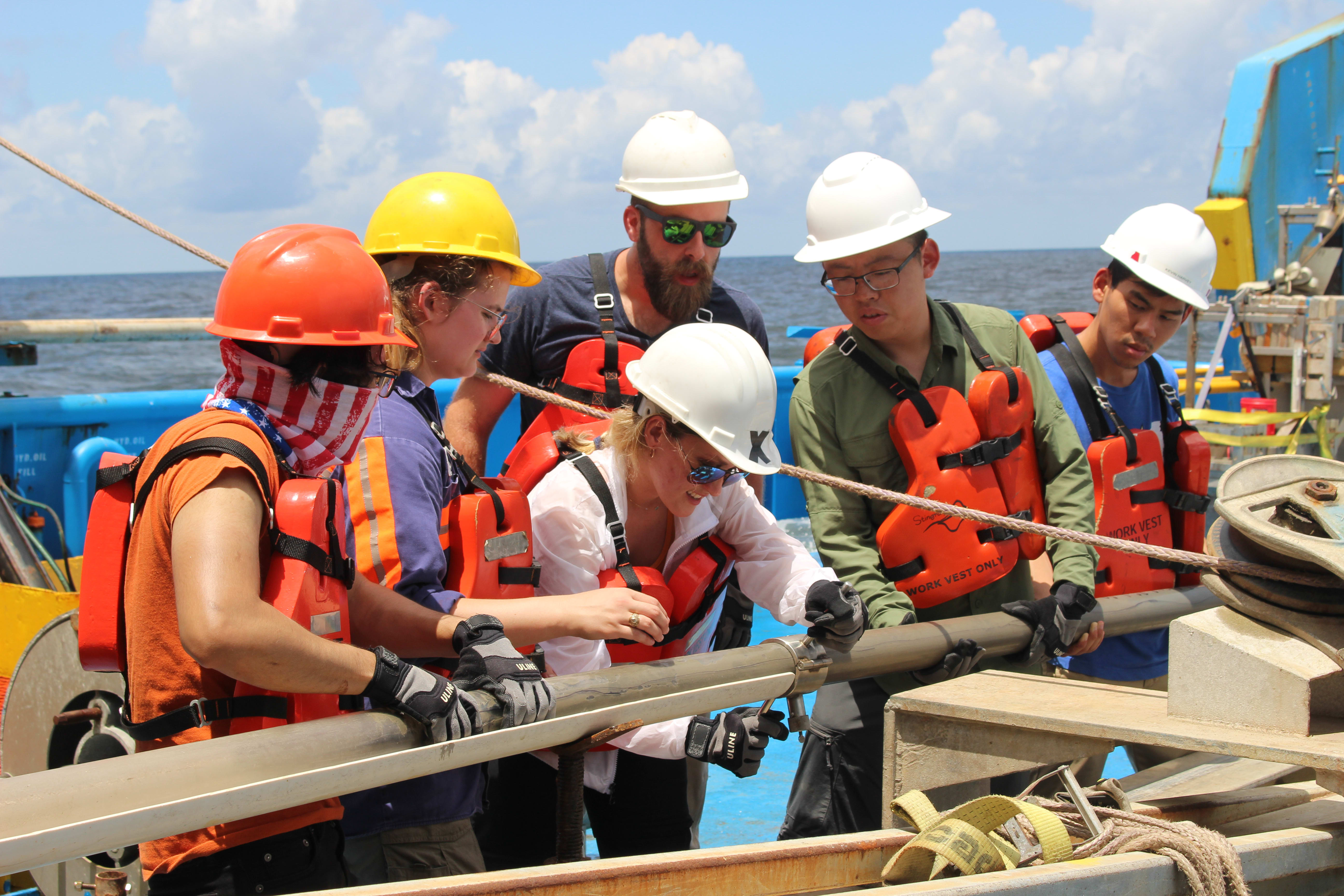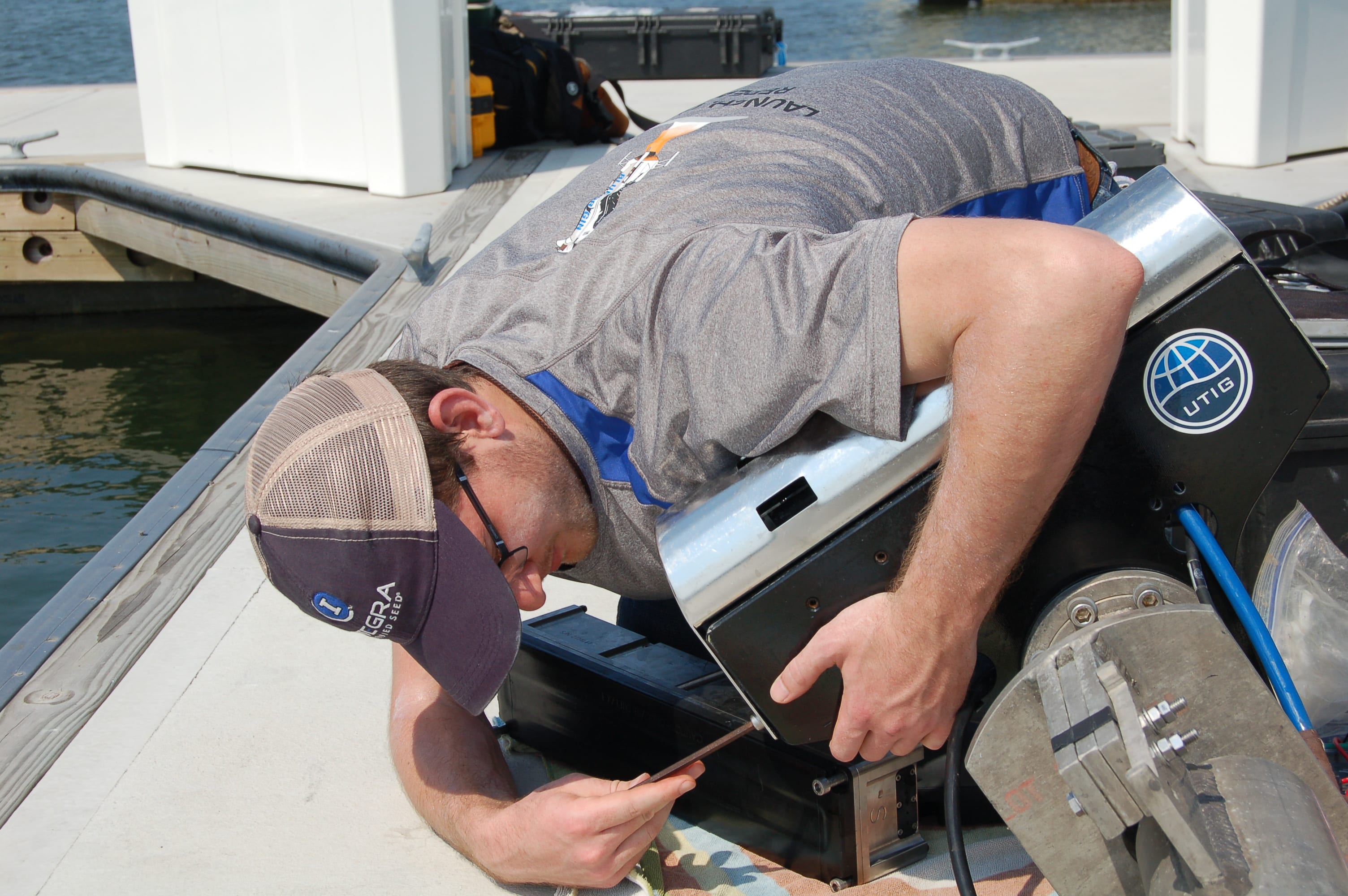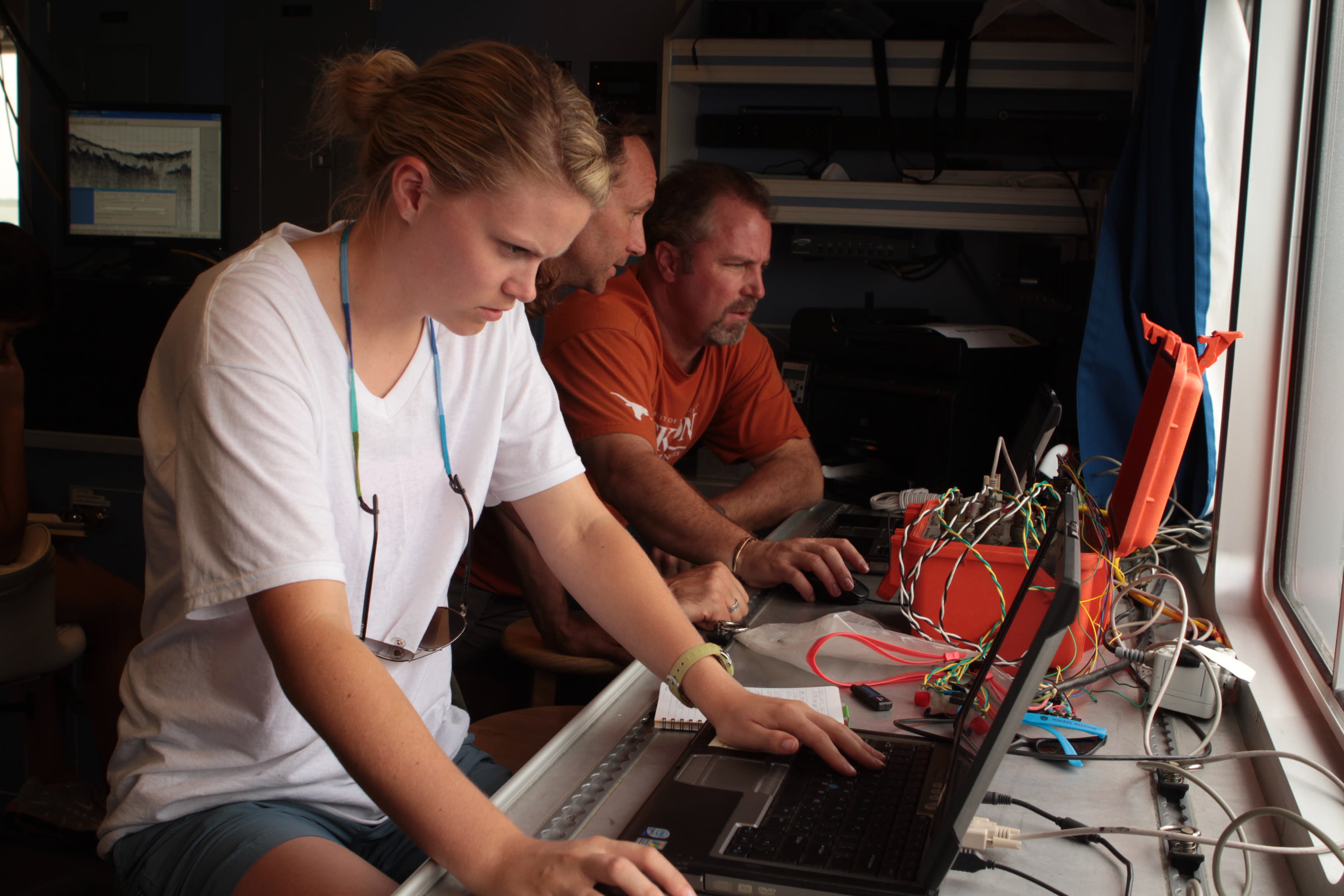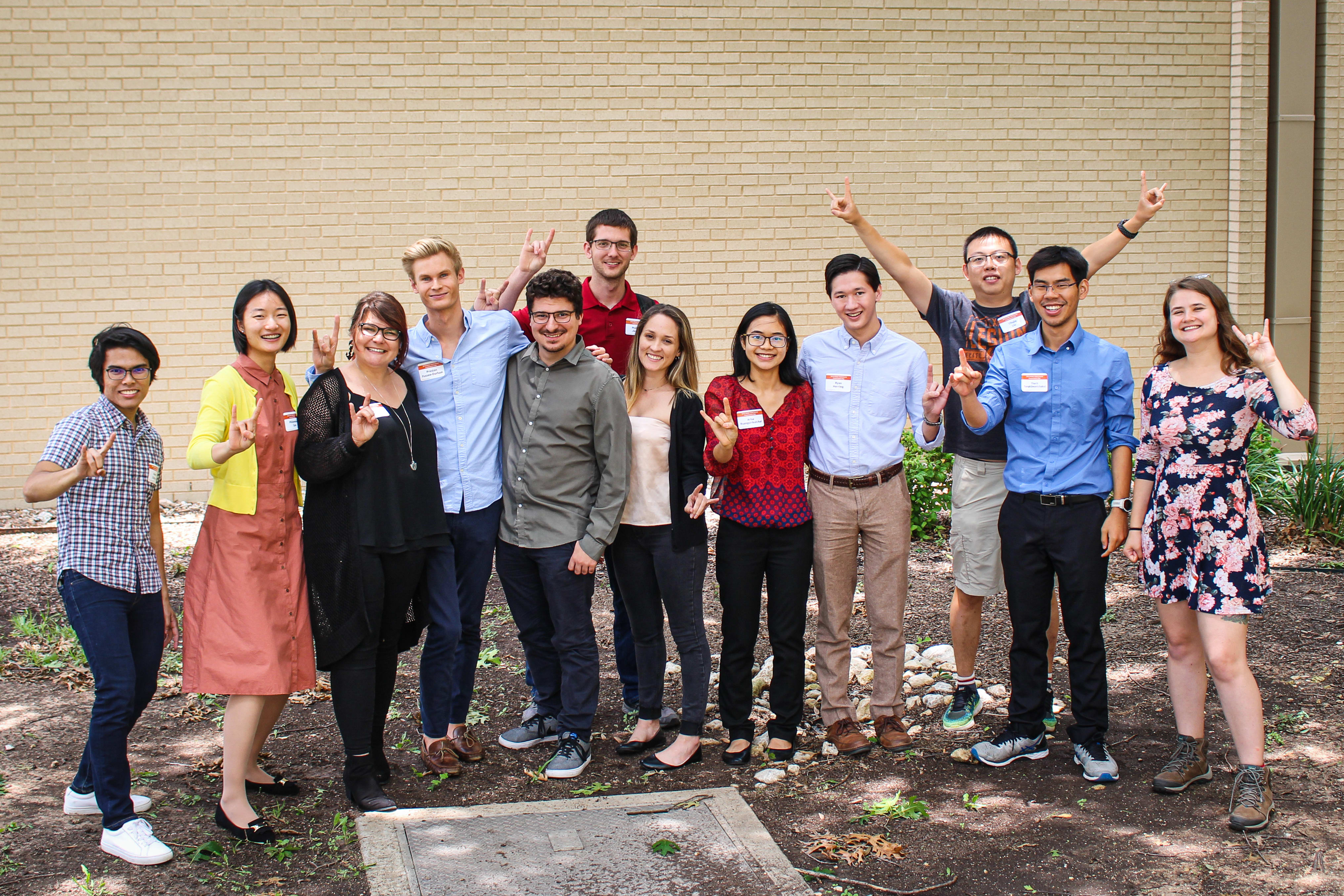This project is now in update mode. Check back regularly to see how things are progressing.
Marine Geology and Geophysics Field Course
UPDATE: Thanks to all of our AMAZING donors for helping us make the 2020 Marine Geology and Geophysics Field Course a Reality! We reached and surpassed our goal. 123% funded, thank you everyone!
UPDATE: With the help of our outstanding supporters, we have reached our $10,000 goal in only 5 days! We have decided to focus on raising an additional $10,000 for a total of $20,000. Any additional funds we raise will go directly to our 2020 class vessel charter. THANK YOU for your amazing support!
Learning by doing - help us teach the next generation of geoscientists!
Each Maymester (between spring and summer semesters), the University of Texas Institute for Geophysics (UTIG), Jackson School of Geosciences, offers a three-week field course that provides hands-on instruction for graduate and upper-level undergraduate students in the collection and processing of marine geological and geophysical data. Students participate in three days of instruction designed to communicate geological context of the field area along with theoretical and technical background on each field method. The class then travels to the Gulf Coast for a week of at-sea fieldwork in locations that provide an opportunity to investigate coastal and shelf processes.
Student teams rotate between UTIG’s 26’ R/V Scott Petty and a larger vessel. They assist with survey design, mobilization, and learn about data acquisition, quality control, and safe instrument deployment and recovery. Teams process data and analyze samples in on-shore field labs. During the final week teams integrate, interpret, and visualize data in a final project using industry-standard software. The course concludes with team presentations on their interpretations to the class, class alumni, and academic and industry supporters.
The Marine Geology and Geophysics Field Course is more than just a class – we are training the next generation of scientists to tackle the world’s future energy and climate problems through sound science, collaboration, and communication!

We need YOUR help!
This course is a critical resource for the University of Texas, but is in danger due to a funding shortfall. Your gift will support the large marine research vessel that is the centerpiece of the 2020 Marine Geology and Geophysics Field Course – help us get students out there!

Why us?
- The Marine Geology and Geophysics Field Course is unique in the world (to our knowledge).
- The course integrates real research with education. The course helps build regional knowledge for more focused studies while taking students through a science project from beginning to end in only three weeks. We involve students in collecting data that are important to Texas coastlines, to our understanding of coastal processes, and to the study of natural disasters.
- We give students post-course opportunities for independent research projects, publication, and presentation at national meetings.
- Students report a greater understanding of marine geology and geophysics through the course’s intensive, hands-on, collaborative approach and high instructor/student ratio. They also note increased confidence in the scientific process, trouble-shooting, teamwork, leadership, and communication– skills imperative to any successful career!
- Students are more employable because the course provides access to and understanding of field, processing, and interpretation techniques that are in demand in a variety of industries.

Some recent examples of what students have to say about the course:
“I not only learned how to collect and use similar data to my own thesis research, but I can respect the limits of where and why we can (or can’t obtain such data in the real world. Because of this course, I know I can be a better researcher and teammate…in any group.” —Sophie Goliber, graduate student, 2019
“I had an amazing time in the MG&G field course! Being exposed to a magnitude of data collection techniques first-hand was far more educational than what I have learned in a classroom setting. Also, working with a group to achieve a common goal in such a short period of time taught me the importance of being a team player as well as being patient with my fellow colleagues. 5 out 5 stars!” —Tom Messer, undergraduate student, 2018
“We worked in teams throughout the course to complete a research project and present meaningful results, a process that developed effective communication and teamwork skills that will be invaluable in the future. Lastly, the course allowed us to form professional and personal relationships with the instructors and fellow students, thus expanding the connectivity among the Jackson School of Geosciences community.” —Brandon Shuck, graduate student, 2017
Why you?
You can make a huge difference in the lives of young scientists! Please help us make the 2020 class a reality, donate!
"What starts here, changes the WORLD." Hook 'em Horns!

$24
MG&G Students in the Workforce
To date, 24% of our alumni have gone on to successful careers in the energy, environmental, geotechnical, coastal restoration/management, and policy fields. Another 11% work in government labs and 9% have pursued careers in academia.
$62
Show Me the Data
During a week in the field, we average 62 kilometers each of multibeam and seismic data collection. This is also close to the number of pounds of hamburgers we have made Tuesday nights in the field over the last 12 years!
$164
Alumni of MG&G
We have had 164 students complete the class. While most are from the United States, we have had students from eighteen other countries as well. Students report that the variety in their peers' cultural and experiential backgrounds greatly enriches the course.
$512
Get 'em Out There
Not only our area code, this is the average number of miles we put on our vehicles in one field course hauling, equipment, the small boat, and people to the Gulf Coast.
$937
Lowest Pressure
During Hurricane Harvey, the lowest pressures recorded were 937 mbar. The course performed surveys before and after the hurricane that helped inform scientists about Texas’ coastal processes during and following major storms.
$2,020
Makin' it Happen
Help us extend the class through 2020 and into the future!
$10,000
The Big Boat
It costs approximately $10,000/day to charter the research vessel that is the centerpiece of the course. Students learn multichannel seismic, chirp, and coring techniques while on the large vessel.






